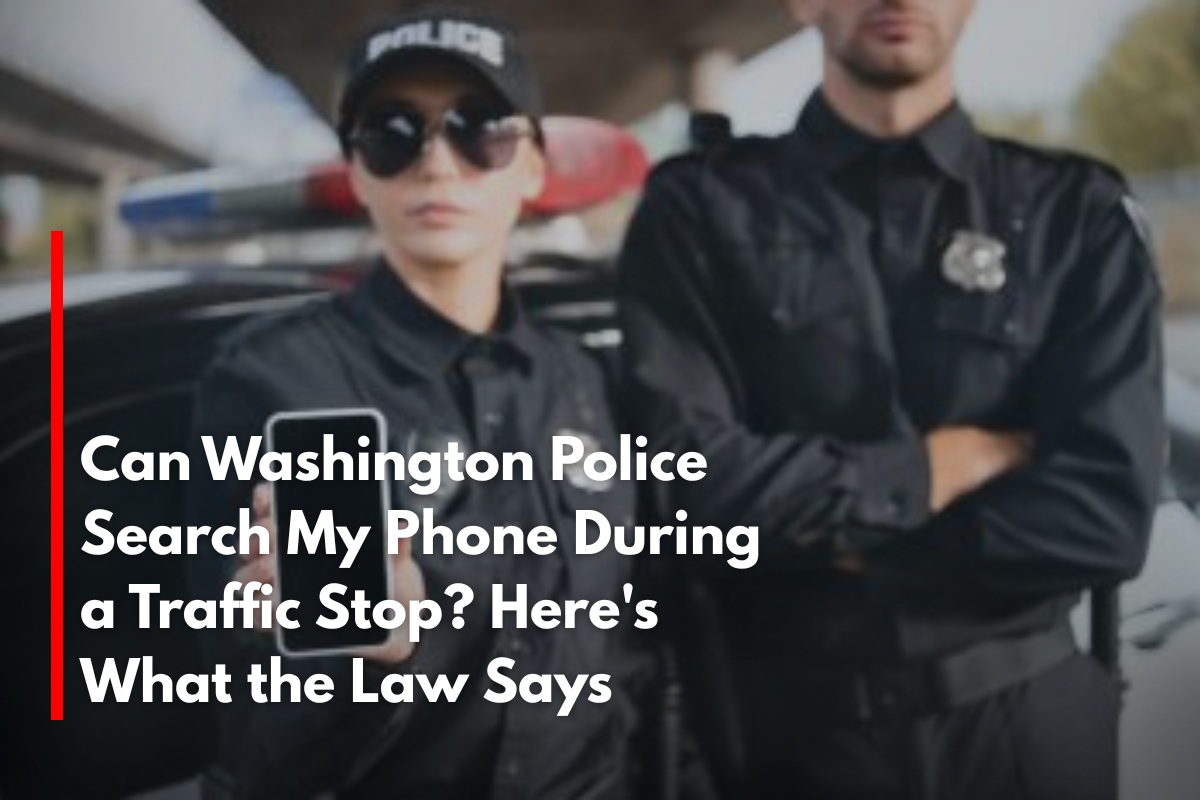If you’re pulled over in Washington State, you might wonder if police officers can legally search your phone during a traffic stop. Your smartphone holds sensitive, private information, so understanding your rights is crucial. Here’s a comprehensive look at the law as of 2025.
The General Rule: Warrants Are Required
Police generally cannot search your phone without a warrant. Both the Fourth Amendment of the U.S. Constitution and Article I, Section 7 of the Washington State Constitution protect your digital privacy, treating your phone as highly personal property.
Officers must present a valid search warrant—approved by a judge and specifying what they are searching for—unless an established exception applies.
Key Exceptions: When Can Police Search Without a Warrant?
There are some limited scenarios where a warrant might not be needed:
Consent: If you voluntarily give officers permission to search your phone, they can do so without a warrant. You have the right to refuse this request.
Exigent circumstances: If police reasonably believe evidence on your device is about to be destroyed or there is an immediate threat, they may search without a warrant—but these situations are rare and must be justified later in court.
Abandonment: If you abandon your phone while fleeing or at a crime scene, police may perform a warrantless search.
Search incident to arrest: While police can search you and your belongings after an arrest, courts have drawn sharp lines regarding digital data on phones. Simply being under arrest doesn’t automatically allow them to search the information on your phone without a warrant.
What About the Lock Screen?
Washington law has clarified that officers cannot use information visible on your phone’s lock screen—such as messages or notifications—without first obtaining a warrant. Taking screenshots of a lock screen before having a warrant is also prohibited.
Practical Tips During a Traffic Stop
You can refuse consent: If asked, you’re entitled to politely refuse a phone search. Say clearly, “I do not consent to any search of my phone.”
Do not attempt to delete anything or act suspicious: This could raise suspicion or lead to other legal complications.
If police seize your phone: They can hold onto it until they obtain a warrant, but cannot examine its contents unless an exception applies.
Data Privacy in Washington
Washington’s privacy laws—bolstered by recent legislation—place extra emphasis on protecting electronic data. Law enforcement agencies face strict limitations, and courts have consistently ruled in favor of digital privacy rights.
Table: Police Authority to Search Your Phone in Washington
Key Takeaways
Police in Washington generally must have a warrant to search your phone during a traffic stop.
You are not required to grant consent, and you should state your refusal politely and clearly.
Exceptions exist but are highly limited and must meet strict legal standards.
Practicing your right to privacy is both legal and advisable. If an officer searches your phone without a warrant or without a clear legal exception, contact a qualified defense attorney to help protect your rights.
Sources
[1] https://mcaleerlaw.net/your-phone-as-evidence/
[2] https://southsoundlawgroup.com/can-the-police-search-your-cell-phone/
[3] https://www.treyzlaw.com/can-the-police-search-your-cell-phone/
[4] https://www.tromboldlaw.com/blog/can-police-in-washington-legally-search-your-phone/
[5] https://www.washingtonstateattorneys.com/can-the-police-search-your-smartphone-without-a-warrant.html











